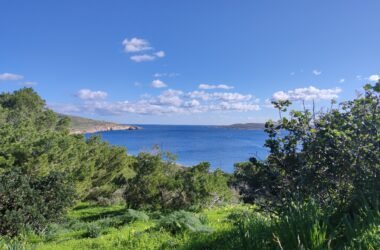As 2025 approaches, Malta and Gozo stand out as premier destinations for those seeking a Mediterranean lifestyle. The islands attract an ever-growing expatriate community, drawn by career opportunities, investment potential, and a rich cultural heritage that fosters integration.
Population and Nationalities
As of the end of 2023, Malta’s population reached approximately 563,443, with around 20% being foreign nationals. The largest expatriate groups include individuals from the United Kingdom, Italy, the Philippines, India, and Serbia.
UK nationals, in particular, remain prominent due to long-standing ties, although their residency process has evolved since Brexit. Italians and Filipinos have also built vibrant communities, contributing to Malta’s economic and cultural landscape. Non-EU nationals accounted for 87.9% of net migration in recent years.

Integration into Maltese Society
Foreign communities in Malta have actively integrated into local society through cultural events, language learning, and participation in community initiatives. While English remains widely spoken, expatriates are encouraged to learn Maltese to enhance integration. The government and NGOs also facilitate inclusion through programs aimed at fostering multicultural collaboration.
A notable example is the ‘I Belong‘ programme, launched in 2018 as part of the national integration strategy. This free, voluntary programme offers accredited courses in Maltese and English languages, as well as cultural and societal orientation sessions. Participants who complete the programme receive an Integration Certificate, which can facilitate their application for long-term residency.
The British Community in Malta
The British expatriate community has a long-standing presence in Malta, deeply enriching the island’s cultural and social landscape. Organizations like the British Residents’ Association Malta provide social activities and support networks, helping British residents build connections and friendships across the island. Additionally, online platforms such as InterNations offer a space for British expats to share experiences and practical advice, making it easier to adapt to life in Malta.
From enjoying Malta’s familiar ties to British history to integrating into local traditions, the British community has become an integral part of the island’s multicultural identity.
The British expatriate community has a long-standing presence in Malta, deeply enriching the island’s cultural and social landscape. Organizations like the British Residents’ Association Malta provide social activities and support networks, helping British residents build connections and friendships across the island. Additionally, online platforms such as InterNations offer a space for British expats to share experiences and practical advice, making it easier to adapt to life in Malta.
The Filipino Community in Malta
The Filipino community is one of the fastest-growing expatriate groups in Malta, with approximately 13,000 individuals, including workers and their families.Organizations like the Filipino Community in Malta (Fil-Com Malta) support unity and provide resources to Filipino expatriates, regardless of political or religious backgrounds. Additionally, their Facebook group Filipino Community in Malta which has 5,1k of members, serves as a valuable resource for this large and dynamic community.
Cultural events, such as the celebration of the Santo Niño feast, showcase the community’s rich traditions and help preserve their heritage while fostering a sense of belonging. Their presence highlights the diversity and cultural richness of Malta’s expatriate population.
Serbian Life in Malta
Serbian nationals in Malta demonstrate effective integration, supported by a strong community network, including the 30K-member Serbian Maltese Info Group on Facebook. Serbian-owned enterprises, such as the Familija restaurant in Buġibba and various bakeries and grocery stores, serve both the Serbian diaspora and the local population, combining cultural preservation with economic contribution.
The Serbian community maintains its traditions through an Orthodox church, folklore groups, and a weekend school funded by the Serbian Ministry of Education, ensuring younger generations retain their language and heritage. This thriving community highlights how expatriates can contribute socially and economically while preserving their cultural identity.
Online Expatriate Communities
In addition to physical communities, online platforms play a crucial role in connecting expatriates. The largest Facebook groups for expatriates in Malta and Gozo are:
Gozo Expats: Counting 10k members, this group focuses on expatriates living in or interested in Gozo. It provides a platform for discussions, advice, and information sharing about life on the island.
Expats Malta: With 153.1k members, this group serves as a vibrant hub for expatriates and immigrants living in Malta to share advice, personal experiences, and recommendations. It fosters a supportive environment where members can seek information, share insights, and build connections
Expatax Malta: This dedicated group is managed by experts to help expatriates navigate challenges such as taxation, residency, and legal matters in Malta. It provides practical advice and answers to common questions, making the process of settling in Malta smoother.
Employment Opportunities for Expatriates
Expats living in Malta are employed across various sectors. High-demand fields include:
• Information Technology (IT): Malta’s growing fin tech and gaming industries attract professionals, particularly from EU countries.
• Tourism and Hospitality: Many expats work in hotels, restaurants, and travel-related businesses due to Malta’s strong tourism sector.
• Construction and Real Estate: Workers from countries such as Albania and several African nations play a significant role in Malta’s construction industry.
• Healthcare and Education: Professionals, particularly from India and the Philippines, contribute to Malta’s healthcare system and education sector.
Education and Family Life
Malta is becoming an increasingly attractive destination for expatriate families. International schools, offering programmes such as the International Baccalaureate, accommodate a wide range of cultural backgrounds. Meanwhile, Maltese public schools foster inclusivity through tailored initiatives designed to help expatriate children integrate and succeed.
Additionally, recreational facilities like parks, beaches, and community centers ensure families have access to leisure activities. Annual events, such as family-friendly festivals and cultural workshops, enable expatriate families to forge connections and build long-term ties within the community.
Challenges and Opportunities
Malta offers a welcoming environment for expatriates, but challenges such as high property prices, housing competition, and navigating residency and work permit processes remain. However, the island’s strong economy, mild climate, and strategic location make it an attractive choice for those willing to adapt. Recent government initiatives, including improved infrastructure and streamlined digital platforms for managing residency and work applications, are helping to mitigate these difficulties, enhancing the overall experience for newcomers.
Conclusion
Malta and Gozo have become home to a growing number of expate who have built thriving communities, established businesses, and integrated well into local life. Their presence reflects the islands’ reputation for fostering a welcoming environment, supported by government efforts to streamline relocation processes and encourage integration. From cultural initiatives to policies designed to ease settling in, Malta continues to attract expatriates seeking not just a place to work, but a place to belong.
If you are interested in sharing your story as part of a community or would like to book an interview, contact us through our web page at expatax.mt.
Read More
Community Integration in Malta: A Guide for Expats
Malta Compared to Europe: Affordable Living with Exceptional Standards
What You Should Know About Education in Malta








